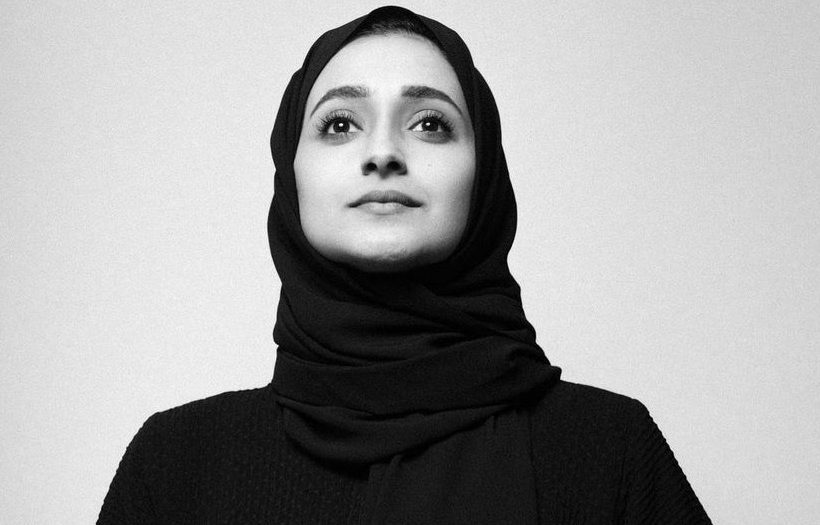The Emirati activist previously sought political asylum with her husband Abdulrahman Bajubeir in Qatar.
US-based advocacy group Democracy for the Arab World Now [DAWN] has called on UK authorities to investigate the car crash that led to the death of prominent Emirati dissident Alaa Al-Siddiq, who passed away on Saturday after celebrating her 33rd birthday.
“While we have no reason to believe that Al-Siddiq’s death was nothing but a tragic accident, we need UK authorities to reassure us that no foul play was involved, given the Emirati and Saudi government’s record of surveilling, targeting and harassing activists and their families abroad,” said Sarah Leah Whitson, Executive Director of DAWN.
Al Siddiq’s sudden death drew skepticism by the international community, given her vocal opposition to the UAE and its recent normalisation with the Israeli occupation.
According to DAWN, Thames Valley Police published an urgent appeal for witnesses to the crash, in which three others were also injured, including the driver of the second vehicle.
The advocacy group also urged Emirati authorities to immediately enable the return of Al-Siddiq’s body to the UAE so that she can be buried according to Islamic traditions in her homeland, while calling for the release of her father Muhammed Al-Siddiq to attend the funeral.
“The very least Emirati authorities could do is to repatriate Al-Siddiq’s body and allow her father to leave prison to attend a funeral and properly grieve her loss,” said Whitson.
Former Qatar-based Emirati dissident killed in London car crash
“Like so many hundreds of thousands Arab democracy exiles, Alaa Al-Siddiq’s exile in the UK was a direct consequence of her government’s repression; her death far away from her loved ones is a tragic and sad outcome of Emirati government persecution,” she added.
Death in exile
Al-Siddiq was an outspoken human rights defender who previously sought political asylum with her husband Abdulrahman Bajubeir in Qatar in 2012, when Emirati authorities launched crackdown on political dissidents between 2011-2012.
Bajubeir then left for the UK while his wife remained in Doha before shortly following him to London. She died on Saturday after living there in exile since 2019.
Al Siddiq was the Executive Director of DAWN’s partner organisation ALQST, a leading UK-based advocacy organisation for human rights in the Gulf. She received her masters in Public Policy from the Hamad Bin Khalifa University in Qatar Foundation.
“Al-Siddiq was inspired, not defeated, by the injustice experienced by her father, Muhammed Al-Siddiq, to seek justice for all of the people of the Gulf region deprived of basic human rights,” said Whitson, who is also a board member of ALQST.
She has been defending the rights of prisoners of conscience in the UAE, including the plight of her father who is has been held in Emirati prison since 2012 for his peaceful calls for political reform. His activism led to the stripping of his citizenship.
“Al-Siddiq’s commitment and perseverance are a model for all of us. We are confident the work of ALQST will continue; it is needed now more than ever,” Whitson added, speaking of the deceased activist.
In a 2018 interview with Qatar TV, Qatar’s Deputy Prime Minister and Minister of Foreign Affairs Mohammed bin Abdulrahman Al-Thani said that a dispute had occurred between Qatar and the UAE in 2015 concerning a political dissident’s wife.
The UAE sent a special envoy to the Amir Sheikh Tamim bin Hamad Al Thani and demanded that Qatar hand over the woman for arrest – a request that Qatar refused.
This caused a dispute between the Gulf nations in 2015, just two years ahead of the 2017 blockade.
Although the Qatari official fell short of mentioning her name, it was later clarified that the woman in question was Al-Siddiq, according to editor-in-chief of the Qatar-based newspaper Al-Arab, Abdullah bin Hamad Al-Athba.
Her death sparked an outpouring of condolences from major rights defenders online, including the wife of slain Saudi journalist Jamal Khashoggi who was killed by Saudi agents in the kingdom’s Istanbul consulate in 2018.
“She wasn’t afraid and it never stopped her from doing her peaceful and legitimate human rights work, but she knew she was at risk,” Alaa’s close colleague Khalid Ibrahim, executive director of the Gulf Centre for Human Rights, told the UK’s Telegraph newspaper on Sunday.
Follow Doha News on Twitter, Instagram, Facebook and Youtube







